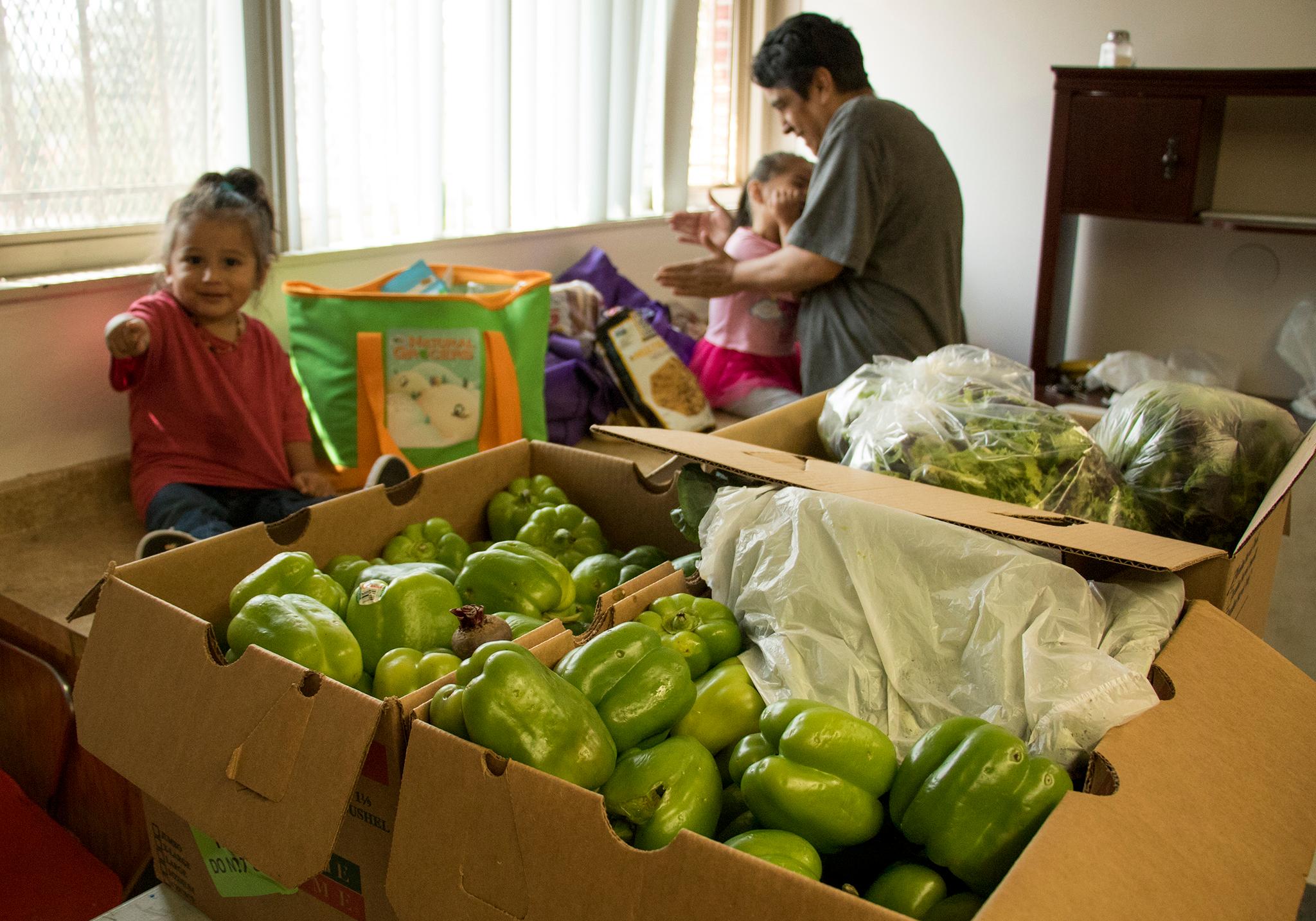A hungry child can be obese or on the verge of diabetes.
That's because being well nourished means not just eating enough, but eating right. And that's why the nonprofit Denver Food Rescue is planning a new project with Denver Health, the city's public hospital and clinic system.
"Food is medicine," said Denver Food Rescue Program Director Christine Alford. "For you to be able to be productive and successful, you need to make sure you're getting healthy food."
Denver Food Rescue's bicycle-mounted volunteers collect produce that is edible - but perhaps imperfect or nearing its sell-by date - that stores, farmers markets, restaurants and wholesalers might otherwise throw away. It also collects from large pantries like Metro Caring. Last year, Denver Food Rescue reported picking up more than 500,000 pounds of food valued at almost $2 million. The produce is then offered at no-cost at what might be called pop-up pantries. The pantries, often simply a table piled with fruits and vegetables, are set up at places the target audience already frequents, such as schools, recreation and community centers, a Boys & Girls Club, a senior housing complex.
In a project expected to start early next year, one of those pantries will be part of a program fighting childhood obesity and diabetes at a Denver Health clinic, Sam Sandos Westside Family Health Center on Federal Boulevard.
The Fruit and Vegetable Prescription Program, or FVRx, will support participants in the Sam Sandos clinic's MEND program. MEND -- Mind, Exercise, Nutrition, Do It! -- was developed in the United Kingdom based on extensive research and has spread around the world. Children between the ages of 7 and 13 who have been diagnosed as obese or pre-diabetic are, along with their families, encouraged to change how they think about food and exercise, to keep active and to eat healthy, tasty and nutritious food.
Christy Elwell, a social worker at the clinic, has already seen the impact of fresh food thanks to an informal arrangement over the last two years with the Sun Valley Kitchen community center's pantry. She vividly remembers the reaction one summer when raspberries were among the donations Sun Valley shared.
Young clinic patients "just snacked on them like they were candy," Elwell said. They learned that "healthy food tastes good. You can change the way you eat. It doesn't just have to be Cheetos and fast food."
But when budgets are strained by housing, transportation and other costs and decent grocery stores are far from home, families may have little choice but to rely on cheap starches or sugary, salty canned or prepared foods. Elwell said the closest grocery stores are at least a mile away from many families living near Sam Sandos and getting to them for those without cars involves a bus ride plus transfer.
The partnership with Denver Food Rescue will secure families a more consistent supply of fresh fruits and vegetables. Elwell said the clinic dietician may supply recipes to go with the food.
"Now we will be our own no-cost grocery," Elwell said. "It's very exciting for us."
The social worker said that in addition to the improved diets, knowing that other people care will help the community she serves feel less isolated.
Elwell said up to 60 families participating in MEND could benefit from FVRx over a year. Sam Sandos was among the first Denver Health clinics to offer MEND starting about four years ago, she said, adding MEND is now available at most Denver Health clinics.
Denver Food Rescue's Alford envisions a research component to FVRx. The Sam Sandos pantry will be operated out of the Denver Food Rescue's regular supplies and budget and staffed by clinic workers. Alford is trying to raise additional funds to hire a researcher to study how, over time, the health of MEND participants who have access to the pantry might differ from that of other MEND participants. If significant benefit is found, Denver Food Rescue will work to bring pantries to other Denver clinics that offer MEND.
Access to fresh produce may even entice families to take part in MEND, and ensure those that start the program complete it, Alford said.
Elwell, the clinic social worker, said she has seen studies showing impressive impact on adults with type 2 diabetes who participated in programs involving fresh produce pantries. She is eager to see research involving MEND and food pantries.
According to MEND researchers, about a third of children in the United States are overweight or obese, making them more likely to become overweight or obese adults. The Colorado Children's Campaign, in its most recent of its annual accounting of the state of Colorado kids, reported one in seven young Coloradans lived in households that experienced food insecurity - meaning they were not always sure of having enough to eat - between 2014 and 2016. Denver officials estimate nearly one in five children in the city are experiencing food insecurity or hunger.
Food insecurity "is linked to obesity because it encourages overeating and low-cost foods tend to be highly processed and less health," according to the Children's Campaign.
Or, as Alford put it: "When you're hungry, you don't think about what you're going to eat."













